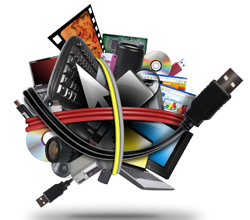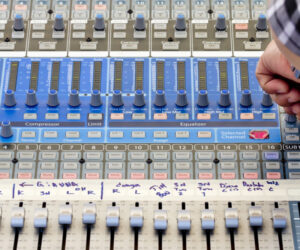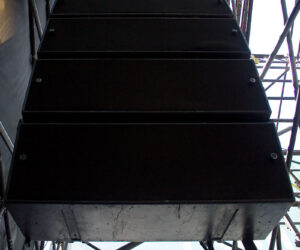It’s becoming increasingly difficult to keep up with technology. What used to be “merely” hardware now has a software component. Everything has layers, touch screens, and incredible power and flexibility, which is great. But the not-so-great part is that the learning curve is ever steeper.
And while there are standards for MIDI, USB, .WAV, Ethernet, MADI, and many other methods of keeping all this gear connected and communicating, each mixing platform, DSP box and loudspeaker management unit has its own proprietary file structure and operating system. In other words, live sound and all that it entails has become more complex than ever.
Meanwhile, most of us also have smart phones, tablets, laptops and PCs with multiple programs and apps, and using Wi-Fi, LTE, 4G and other ways to access the Internet. And we communicate with each other via SMS, Facebook, Twitter, Instagram, Skype, message boards, e-mail, and phone calls (via cell or good ol’ land lines). We set up these devices and services, develop at least a working knowledge of each, and oh, by the way, need to keep track of passwords for all of them.
Shooting Ourselves In The Foot?
Of course, it’s important to keep up with these things in a general sense. But how “up to date” does we really need to be? Let’s start with the hardware.
What was once the occasional software update has turned into a near bombardment of update notices for our firmware (hardware), software and apps of all kinds. Most of the time, these updates are beneficial by fixing bugs, beefing up security, adding features or generally improving the user interface.
But sometimes, an update can “break” an otherwise working unit. We’ve probably all experienced this one. For me, it was when I was working on a DVD project on my iMac a couple of years ago and updated to the latest OS. I quickly discovered that not only had they stopped supporting DVD authoring, something else was broken so that my photos were rendered in strange colors. To finish the project I had to borrow a friend’s Macbook that hadn’t received the update.
And that’s when I learned a valuable lesson (again): the latest version isn’t always the best. In fact, it was basically folly on my part to do a major OS update like that during the middle of a project, and if I’d done any research beforehand, I would have known to expect problems.
Deliberate Obsolescence?
Now, not every manufacturer deliberately obsoletes its equipment or decides to negate interoperability with other equipment, but it does happen. And in our business, having the show go on is key. In fact, it’s everything. To paraphrase the late Albert Lecesse of Audio Analysts, “priority one is to make sound, and priority two is to keep making sound.”
Sure, that fancy vocal microphone or “black box” processor may be really nifty, but is it suitable for the tough, demanding world of touring sound? Or even for the perhaps less demanding but still critical world of worship sound? One reason we’re still using some “classics” in our daily work is because they keep working, day after day. Anything delicate, fussy, unreliable or otherwise non-conducive to this consistency will end up getting shelved in favor of devices that always work.















